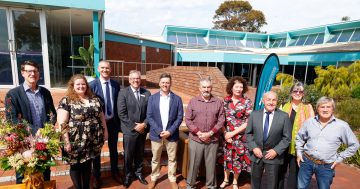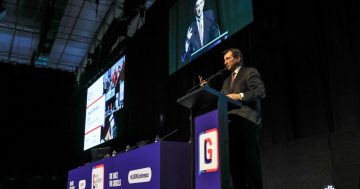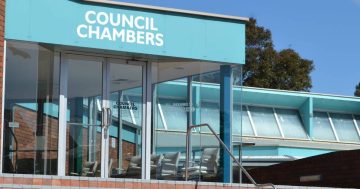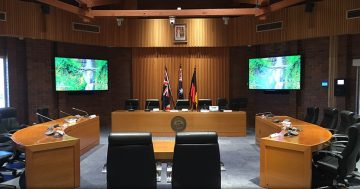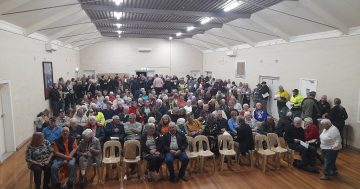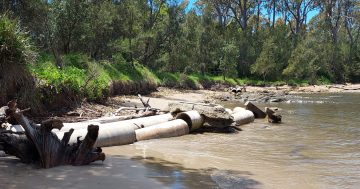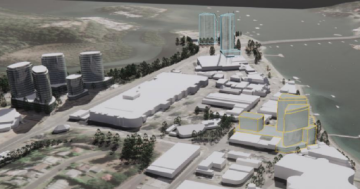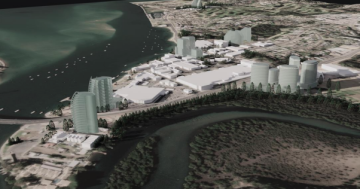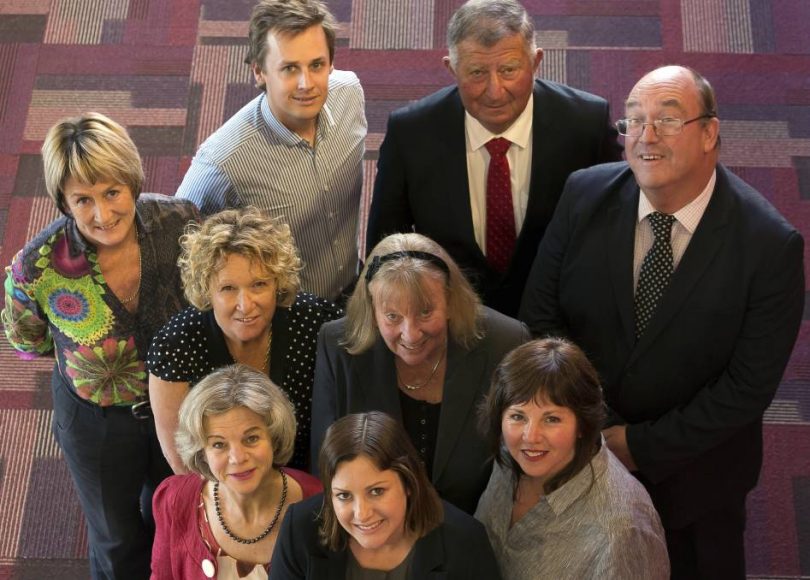
Bega Valley Shire Councillors – Bain, Nadin, Allen, Fitzpatrick, Tapscott, Seckold, Dodds, Griff and Mayor Kristy McBain. Photo: BVSC
Bega Valley Shire Council is considering a number of changes to how council meetings run and how the community takes part in that process.
Traditionally the agenda for a council meeting is published on the Thursday before a meeting. Roughly speaking, meetings happen every three weeks on a Wednesday starting at 2 pm.
The first part of every meeting is dedicated to deputations from the community or interested parties on matters arising on that day’s agenda. Not always but mostly, a deputation will result in the matter being deferred in order to seek further information and/or reflect on what has been presented.
The Draft Code of Meeting Practice currently on public exhibition suggests a major shake-up of that routine.
Stirred by advice from the Office of Local Government, all NSW councils are reviewing the rules and regulations that govern the format, tone, and governance around decision making. Locally, Eurobodalla Shire Council is also currently engaged in the process.
One of the significant changes proposed by Bega Valley Shire Council is changing the time of community deputations. In the Draft Code, people are asked to consider moving those presentations to the week before a council meeting, on the Wednesday at 5 pm, rather than at the meeting itself.
Meeting agendas would then be made public via council’s website, libraries, and offices on the Friday before what would become known as the ‘Public Forum’.
Speaking with Region Media, General Manager Leanne Barnes says, “It is vital to stress that members of the public will still be able to make their presentations to Councillors around Council agenda items.”
“As part of the Draft Code of Meeting Practice, and as outlined by the Office of Local Government, meetings are for decision making.
“The proposed changes in relation to deputations allow for members of the public to make [statements], but not in the time allocated for business.”
Council’s draft points to the opportunity for general presentations to be made to Councillors from 5 pm followed at 5.30 pm by deputations relating to matters on the agenda for the next meeting.
“Holding these open sessions later in the day will allow a wider range of people and groups the opportunity to contribute to the decision-making process,” Ms Barnes says.
“Community members will have seen the Business Paper (agenda) and will be able to make comment and provide any supplementary information to Councillors prior to the Council meeting in the following week.”
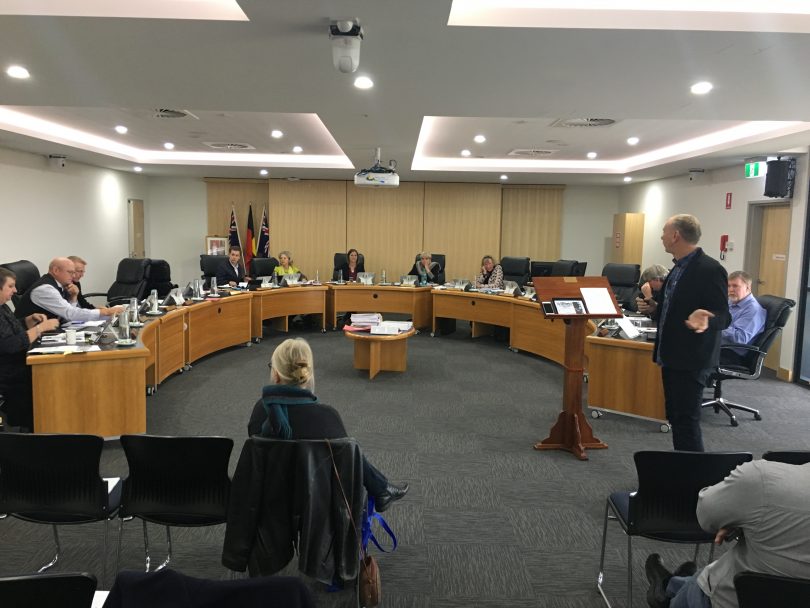
Bega Valley Shire Council’s Code of Meeting Practice is currently up for discussion. Photo: Ian Campbell.
The amount of time people are given to speak has also been flagged as a possible change. Deputations are currently capped at five minutes with a short extension possible. The draft is proposing a limit of three minutes.
“The three-minute timeframe for deputations about Council agenda items has been placed in the draft for consultation and may be changed depending on submissions,” Ms Barnes says.
The General Manager says the live streaming of the Public Forum/deputations will continue if a new time is adopted. Eurobodalla Shire Council is proposed that only the council meeting be streamed to the internet and not the Public Forum.
While some north of the Dignams Creek shire boundary have raised concerns about the tone and manner in which some presentations and discussions take place at Eurobodalla, Ms Barnes says there are no such issues for Bega Valley.
“Council respects the right of community members, groups and ratepayers to raise issues of importance directly with Councillors,” she says.
“There is no issue in relation to the tone or manner of past deputations. On the whole, the vast majority of people are respectful and committed to presenting their position for Council’s consideration.”
Ms Barnes says there is already a level of discussion within the community about the draft which she welcomes.
“Hopefully a change of time will allow a matter to be dealt with at the meeting, we wouldn’t have to defer it, we’d have time to collect further information if needed and get on with the matter.”
Other proposed changes include:
- Applications to speak at the Public Forum must be received by 4.00 pm one day before, the person wishing to speak must indicate whether they speak ‘for’ or ‘against’ the item. Approved speakers must register any written, visual or audio material to be presented no later than 4.00 pm on the day before;
- No more than two speakers to speak ‘for’ and ‘against’ each item of business on the agenda. If more than the permitted number of speakers apply, increasing the number of speakers permitted can be considered;
- The General Manager or their delegate is to determine the order of speakers at the Public Forum;
- Speakers at Public Forums cannot ask questions of the council, councillors or council staff.
The Draft Code of Meeting Practice is currently on exhibition until April 30, Council encourages the community to view the document and have a say. Check Council’s website for full details.






